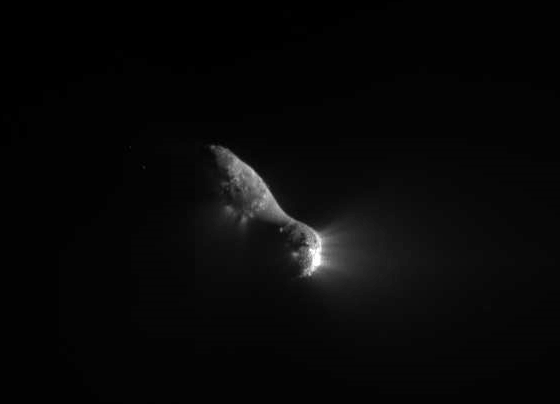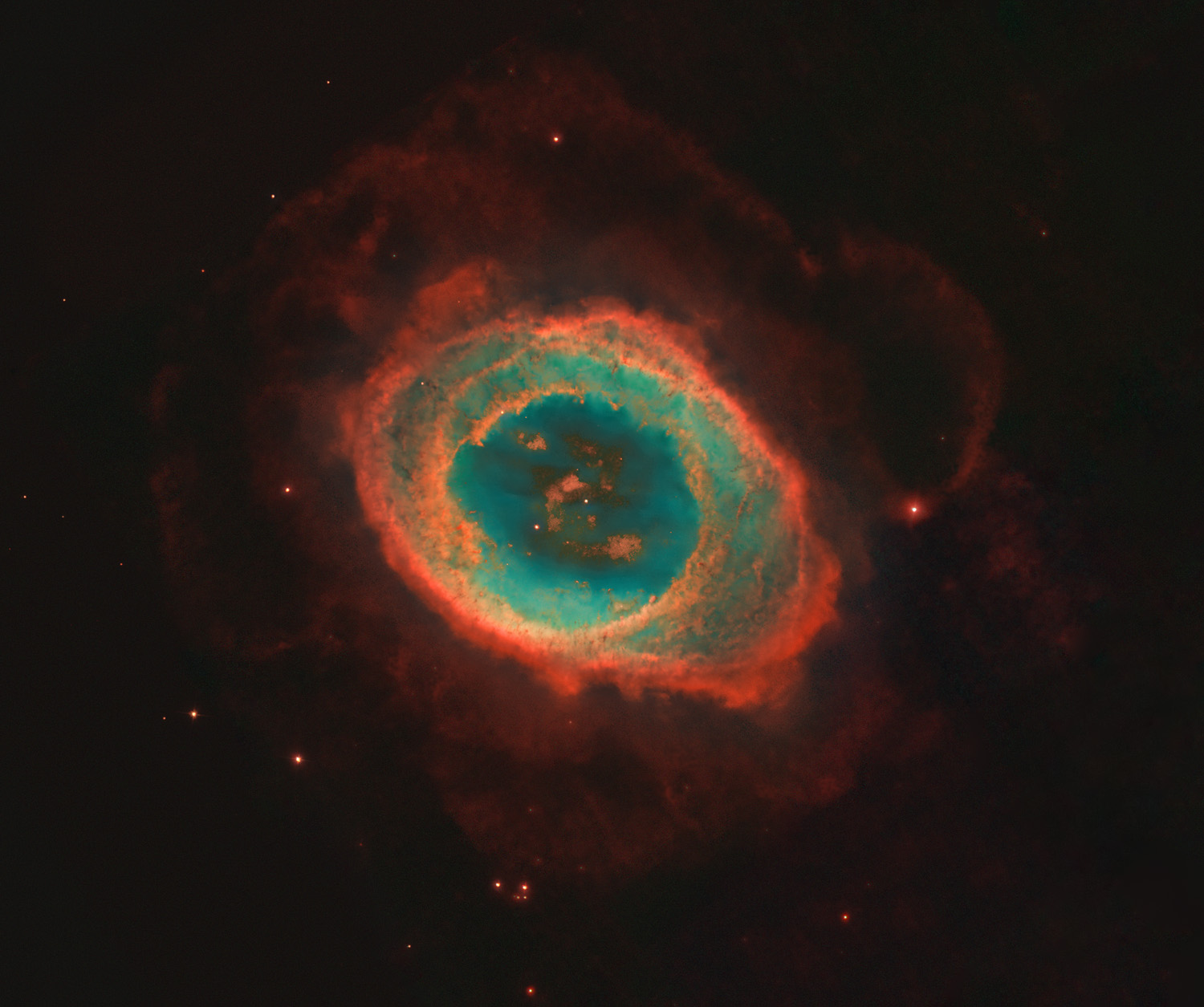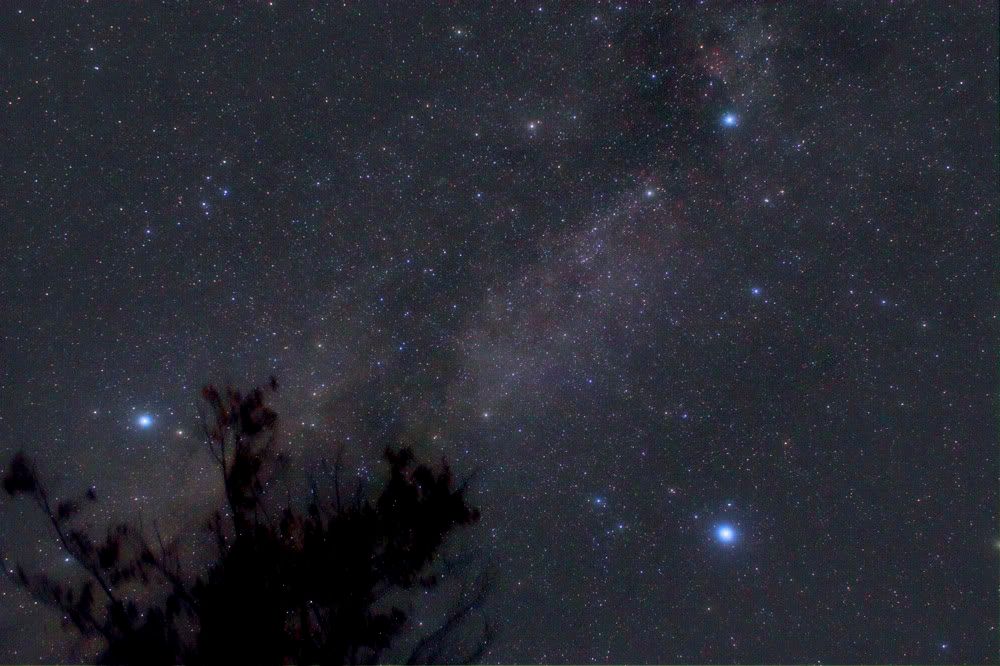Recent Submissions: 2010 November 4-7
Recent Submissions: 2010 November 4-7
_____________________________________________________________________________
Please post your images here for November 4-7.
If you need instructions on posting images, please see this thread.
Thank you!
_____________________________________________________________________________
<- Previous submissions
Gyulbudaghian's Nebula (Herbig-Haro 215 = PV Cephei) and LBN 468
http://www.pbase.com/boren/image/128919087
Copyright: Harel Boren STS-133: Discovery on Pad 5
http://www.launchphotography.com/STS-133_pad.html
Copyright: Ben Cooper James and the Rainbow
Copyright: Mark Gillard
[attachment=0]Rainbow_Gillard.jpg[/attachment][/i]
Comet Hale-Bopp
Copyright: Robert Doty
[attachment=1]hale-bopp_Roty.jpg[/attachment][/i]
<- Previous submissions
Please post your images here for November 4-7.
If you need instructions on posting images, please see this thread.
Thank you!
_____________________________________________________________________________
<- Previous submissions
Gyulbudaghian's Nebula (Herbig-Haro 215 = PV Cephei) and LBN 468
http://www.pbase.com/boren/image/128919087
Copyright: Harel Boren STS-133: Discovery on Pad 5
http://www.launchphotography.com/STS-133_pad.html
Copyright: Ben Cooper James and the Rainbow
Copyright: Mark Gillard
[attachment=0]Rainbow_Gillard.jpg[/attachment][/i]
Comet Hale-Bopp
Copyright: Robert Doty
[attachment=1]hale-bopp_Roty.jpg[/attachment][/i]
<- Previous submissions
A closed mouth gathers no foot.
-
jldauvergne
- Ensign
- Posts: 88
- Joined: Wed Aug 25, 2010 9:11 am
Re: Recent Submissions: 2010 November 4-7
Hartley 2 fly by
http://www.cieletespace.fr/node/6237
Copyright: Jean-Luc Dauvergne I've made this animation with the raws images of the Hartley 2 fly by. Credit : NASA/JPL/JLD/Ciel et Espace
http://www.cieletespace.fr/node/6237
Copyright: Jean-Luc Dauvergne I've made this animation with the raws images of the Hartley 2 fly by. Credit : NASA/JPL/JLD/Ciel et Espace
- nuclearcat
- Ensign
- Posts: 94
- Joined: Thu Apr 08, 2010 9:57 pm
Re: Recent Submissions: 2010 November 4-7
Venus and 24 hours before new moon conjunction
Copyright: M. Raşid Tuğral
Copyright: M. Raşid Tuğral
The Moon is set,
And the Pleiades.
Night's half gone,
Time's passing.
I sleep alone now. ”
— Sappho
And the Pleiades.
Night's half gone,
Time's passing.
I sleep alone now. ”
— Sappho
Re: Recent Submissions: 2010 November 4-7
I made this image last night at mount Ibergeregg. The small city down there is called Schwyz.
+ Ibergeregg + Schwyz +
http://www.kplan.ch
Copyright: David Kaplan
+ Ibergeregg + Schwyz +
http://www.kplan.ch
Copyright: David Kaplan
Re: Recent Submissions: 2010 November 4-7
Looks like a Thomas Kinkade paintingdmkdmkdmk wrote:I made this image last night at mount Ibergeregg. The small city down there is called Schwyz.
+ Ibergeregg + Schwyz +
http://www.kplan.ch
Copyright: David Kaplan
http://farm2.static.flickr.com/1065/514 ... 5403_b.jpg
- emc
- Equine Locutionist
- Posts: 1307
- Joined: Tue Jul 17, 2007 12:15 pm
- AKA: Bear
- Location: Ed’s World
- Contact:
Re: Recent Submissions: 2010 November 4-7
Agreed. Could also be a Pitre. Beautiful image!BMAONE23 wrote:Looks like a Thomas Kinkade paintingdmkdmkdmk wrote:I made this image last night at mount Ibergeregg. The small city down there is called Schwyz.
+ Ibergeregg + Schwyz +
http://www.kplan.ch
Copyright: David Kaplan
http://farm2.static.flickr.com/1065/514 ... 5403_b.jpg
Re: Recent Submissions: 2010 November 4-7
SPIRE-Captured Galaxies
http://www.h-atlas.org
Credit: ESA/SPIRE/H-ATLAS/S.J.Maddox
~ Text by Dr. Haley Gomez
http://www.h-atlas.org
Credit: ESA/SPIRE/H-ATLAS/S.J.Maddox
[attachment=0]apod_hatlas_zoom.jpg[/attachment][/i]
This is a small region of the submillimetre sky located in the constellation of Hydra the water snake, viewed by the SPIRE instrument on the Herschel Space Observatory as part of the Herschel-ATLAS survey. Herschel's SPIRE instrument contains an imaging photometer (camera) which operates in three wavelength bands centred on 250, 350 and 500 μm, and so can make images of the sky simultaneously in three sub-millimetre “colours”. Each pin prick of colour is a galaxy, there are over 2000 galaxies in this image alone, some seen as they were billions of years ago, and almost all so far away that they are seen by Herschel as a single point of light. Also visible as wispy structures draped across the image are diffuse clouds of dust in our own galaxy. This image makes up around 1/10th of the total area which will be observed by Herschel-ATLAS, in which astronomers should eventually find around 250,000 galaxies.~ Text by Dr. Haley Gomez
A closed mouth gathers no foot.
Re: Recent Submissions: 2010 November 4-7
M57: The Ring Nebula
http://www.robgendlerastropics.com/M57-HST-Gendler.html
Copyright and credit: Hubble Legacy Archive (data); Robert Gendler (processing)
http://www.robgendlerastropics.com/M57-HST-Gendler.html
Copyright and credit: Hubble Legacy Archive (data); Robert Gendler (processing)
A closed mouth gathers no foot.
-
bongobob
Re: Recent Submissions: 2010 November 4-7
The Hale-Bopp photo was taken minutes before the lightning storm made it to my location
- geckzilla
- Ocular Digitator
- Posts: 9180
- Joined: Wed Sep 12, 2007 12:42 pm
- Location: Modesto, CA
- Contact:
Re: Recent Submissions: 2010 November 4-7
dmkdmkdmk wrote:I made this image last night at mount Ibergeregg. The small city down there is called Schwyz.
+ Ibergeregg + Schwyz +
http://www.kplan.ch
Copyright: David Kaplan
http://farm2.static.flickr.com/1065/514 ... 5403_b.jpg
I just have to chime in and say along with the others that this is a fantastic image. It actually looks almost like some kind of cinematic still. Expecting Disney's Magic Castle to pan into view at any moment...
Just call me "geck" because "zilla" is like a last name.
Re: Recent Submissions: 2010 November 4-7
Giving neufer ideas, hmmm?geckzilla wrote:Expecting Disney's Magic Castle to pan into view at any moment...
A closed mouth gathers no foot.
-
StefanoDeRosa
- Science Officer
- Posts: 114
- Joined: Mon Apr 12, 2010 8:37 am
Re: Recent Submissions: 2010 November 4-7
Crescent Moon and Venus over a sea of clouds
http://ofpink.wordpress.com/
Image taken on November 5, 2010 at 6.45 a.m from “Colle Braida”, a mountain pass of the Alps at 1,000 meters above the sea level and 50 kilometers from Turin (Italy) and showing a close conjunction between a slide 2% lit waning crescent Moon and Venus (also in a crescent phase after its inferior conjunction of late October) when the lovely pair were in the twilight colors above a fog carpet that was covering the valley below, resembling sea waves.
I also attach a cropped version of the same picture. Other images of the same session are included here: http://ofpink.wordpress.com/2010/11/05/ ... of-clouds/
Copyright: Stefano De Rosa
http://ofpink.wordpress.com/
Image taken on November 5, 2010 at 6.45 a.m from “Colle Braida”, a mountain pass of the Alps at 1,000 meters above the sea level and 50 kilometers from Turin (Italy) and showing a close conjunction between a slide 2% lit waning crescent Moon and Venus (also in a crescent phase after its inferior conjunction of late October) when the lovely pair were in the twilight colors above a fog carpet that was covering the valley below, resembling sea waves.
I also attach a cropped version of the same picture. Other images of the same session are included here: http://ofpink.wordpress.com/2010/11/05/ ... of-clouds/
Copyright: Stefano De Rosa
Re: Recent Submissions: 2010 November 4-7
Crescent Moon
http://www.galacticimages.com
Copyright: John Chumack
[attachment=0]110310WCrescentMoon_Chumack.jpg[/attachment][/i]
http://www.galacticimages.com
Copyright: John Chumack
[attachment=0]110310WCrescentMoon_Chumack.jpg[/attachment][/i]
A closed mouth gathers no foot.
- nuclearcat
- Ensign
- Posts: 94
- Joined: Thu Apr 08, 2010 9:57 pm
Re: Recent Submissions: 2010 November 4-7
Stefano, your images are much more better than mine. I wish I have had a tele objective. I took mine with an 18-55mm and crop it. I didn't see the moon with my eyes, I saw it while processingStefanoDeRosa wrote:Crescent Moon and Venus over a sea of clouds
http://ofpink.wordpress.com/
Image taken on November 5, 2010 at 6.45 a.m from “Colle Braida”, a mountain pass of the Alps at 1,000 meters above the sea level and 50 kilometers from Turin (Italy) and showing a close conjunction between a slide 2% lit waning crescent Moon and Venus (also in a crescent phase after its inferior conjunction of late October) when the lovely pair were in the twilight colors above a fog carpet that was covering the valley below, resembling sea waves.
I also attach a cropped version of the same picture. Other images of the same session are included here: http://ofpink.wordpress.com/2010/11/05/ ... of-clouds/
Copyright: Stefano De Rosa
http://ofpink.files.wordpress.com/2010/ ... ouds-1.jpg
http://ofpink.files.wordpress.com/2010/ ... ouds-2.jpg
The Moon is set,
And the Pleiades.
Night's half gone,
Time's passing.
I sleep alone now. ”
— Sappho
And the Pleiades.
Night's half gone,
Time's passing.
I sleep alone now. ”
— Sappho
Re: Recent Submissions: 2010 November 4-7
I'm new to this site. I took the Hale-Bopp photo with 30 second exposure to finally get a bolt of lightning in frame. I took several hundred shots over the month Hale-Bopp was visible. This was the best.
Re: Recent Submissions: 2010 November 4-7
Halebob, welcome to Asterisk!
A closed mouth gathers no foot.
-
kwon o chul
- Ensign
- Posts: 34
- Joined: Sun Nov 07, 2010 11:13 am
Re: Recent Submissions: 2010 November 4-7
With the first quarter Moon setting in the west, the Milky Way appears more prominently in the starry sky of Uluru-Kata Tjuta National Park; a World Heritage Site in Northern Territory of Australia. The area is best known for Uluru or Ayers Rock, a single massive rock formation visible in the center of this image like a long domed rock. Uluru is one of Australia's best known natural features which is a so-called monolith, extending about 5 km beneath the desert plain and measuring 3.6 by 2.4 km at the surface. It rises 348 meters above the plain.
-
herman1934
Re: Recent Submissions: 2010 November 4-7
THE SUMMER TRIANGLE FRAMES A PORTION OF THE MILKY WAY
Copyright: Perry Holcomb, 2010
The Summer Triangle, with 1st magnitude stars Deneb, Vega, and Altair (clockwise from top) frames a portion of the Milky Way and the red emission nebulae therein. Image by Perry Holcomb, additional processing by Jerry Lodriguss in PhotoShop. Canon 18-55mm kit lens at 18mm f/3.5 and with double fog 3 filter. Modded Canon 450DM ISO1600 single 2 min exposure. Imaging train on AstroTrac. Made at 2700' MSL near Hendersonville, NC.
Copyright: Perry Holcomb, 2010
The Summer Triangle, with 1st magnitude stars Deneb, Vega, and Altair (clockwise from top) frames a portion of the Milky Way and the red emission nebulae therein. Image by Perry Holcomb, additional processing by Jerry Lodriguss in PhotoShop. Canon 18-55mm kit lens at 18mm f/3.5 and with double fog 3 filter. Modded Canon 450DM ISO1600 single 2 min exposure. Imaging train on AstroTrac. Made at 2700' MSL near Hendersonville, NC.
Re: Recent Submissions: 2010 November 4-7
That's a great image, herman1934! I love how the image brings out the blue color of the three bright stars of the Summer Triangle, but it also brings out quite a lot of emission nebulosity and many fainter (but often intrinsically bright) stars in this part of the sky. Thanks! 
Ann
Ann
Color Commentator
-
StefanoDeRosa
- Science Officer
- Posts: 114
- Joined: Mon Apr 12, 2010 8:37 am
Re: Recent Submissions: 2010 November 4-7
Thanks for you comment Raşid and compliments for your nice and difficult catch!
Stefano
Stefano
-
Harel Boren
- Asternaut
- Posts: 2
- Joined: Thu Oct 21, 2010 6:55 pm
Re: Recent Submissions: 2010 November 4-7
CED 214 Emission Nebula in Cepheus
http://www.pbase.com/boren/image/128731053
Copyright: Harel Boren
[attachment=0]Harel.jpg[/attachment][/i]
http://www.pbase.com/boren/image/128731053
Copyright: Harel Boren
[attachment=0]Harel.jpg[/attachment][/i]
-
BeyondVision
- Asternaut
- Posts: 2
- Joined: Sun Nov 07, 2010 6:53 pm
Re: Recent Submissions: 2010 November 4-7
This picture of M31 consists of four nights of data taken in an urban location near to Gloucester, England.
It was taken with my APM TMB105 4” APO refractor with a Williams Optics TMB Flattener and QHY8 one shot colour CCD with Neodymium Filter fitted.
It was guided with a Williams Optics 66SD refractor using PHD. The mount was an Orion Sirius EQG controlled by EQmod.
The data consists of
RGB 17 x 10 minutes
RGB 16 x 10 minutes
Ha 45 x 10 minutes (near to full Moon though) using Baader 7nm Ha filter.
Thanks for looking
Regards
Kevin Taylor
It was taken with my APM TMB105 4” APO refractor with a Williams Optics TMB Flattener and QHY8 one shot colour CCD with Neodymium Filter fitted.
It was guided with a Williams Optics 66SD refractor using PHD. The mount was an Orion Sirius EQG controlled by EQmod.
The data consists of
RGB 17 x 10 minutes
RGB 16 x 10 minutes
Ha 45 x 10 minutes (near to full Moon though) using Baader 7nm Ha filter.
Thanks for looking
Regards
Kevin Taylor
Re: Recent Submissions: 2010 November 4-7
Thank you, Ann. The double fog 3, something I learned about from Jerry Lodriguss, who did the major processing on my image, really makes the brighter stars "pop" in wide angle shots. WA is where I use it almost exclusively. The area in and around Cygnus is extremely interesting even at WA! H-1934Ann wrote:That's a great image, herman1934! I love how the image brings out the blue color of the three bright stars of the Summer Triangle, but it also brings out quite a lot of emission nebulosity and many fainter (but often intrinsically bright) stars in this part of the sky. Thanks!
Ann
Re: Recent Submissions: 2010 November 4-7
Amazing image, Kevin! I'm so impressed that you took it from an urban location. The details are great and the color balance is wonderful!
Ann
Ann
Color Commentator
Re: Recent Submissions: 2010 November 4-7
Uuuuh, that's an amazing photograph. Milky way looks very detailed and contrasty even with the moon in the picture. I wonder if it's just the low light pollution in austraila or if you have stacked your images to get this detailed milky waykwon o chul wrote:With the first quarter Moon setting in the west, the Milky Way appears more prominently in the starry sky of Uluru-Kata Tjuta National Park; a World Heritage Site in Northern Territory of Australia. The area is best known for Uluru or Ayers Rock, a single massive rock formation visible in the center of this image like a long domed rock. Uluru is one of Australia's best known natural features which is a so-called monolith, extending about 5 km beneath the desert plain and measuring 3.6 by 2.4 km at the surface. It rises 348 meters above the plain.
http://www.twanight.org/newTWAN/photos/3002879.jpg










